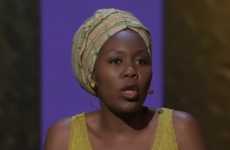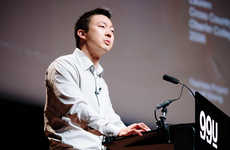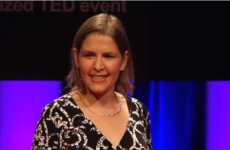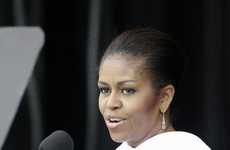
Need Inspiration?
Get inspired by 4,000+ keynote speaker videos & our founder, a top keynote speaker on innovation.
Cheyenne Cochrane Speaks About the History of Natural Hair
Mishal Omar — June 29, 2017 — Keynote Trends
For most women in North America, changing their hairstyles is not a political statement, however it is for many Black women who go from conventional straight hairstyles, to embracing their natural hair. This is a subject that is close to Cheyenne Cochrane's heart, and she recently spoke about the history of natural hair in North America, as well as the movement that is embracing it.
Cochrane begins by talking about the history of natural hair in America – post-Civil War, it was Black people's hair that was considered to be more of an identifier of their "race" than even their skin color. As a result, the multibillion dollar hair care industry targeted at Black people arose, where much of their time was consumed with ensuring that their hair was straight – it was a matter of "survival and advancement." Eventually, this habit stuck and Black communities continued to use hair relaxers and pressing combs that damaged their hair. The issue of Black people, particularly women, being perceived as "unprofessional" or too "pro-Black" when wearing their hair naturally is still extremely common in the workplace, as well as in schools.
After spending years damaging her hair to make it look straight, Cheyenne Cochrane decided to partake in a "No Heat Challenge" (which she documented on social media) in order to focus on the health and healing of her hair, and to indirectly dismiss the Eurocentric beauty ideals that leave so many women in North America behind, both professionally and personally.
In her journey embracing her natural hair, Cochrane encountered hundreds of women who were in the process of doing the same, or who wanted to. For many Black women in North America, going from straight hairstyles to natural ones is considered to be a political statement just as much as it is about self-care, and Cochrane encourages viewers to acknowledge the bravery of women who decide to go natural – despite what society's conventions tell them.
Cochrane begins by talking about the history of natural hair in America – post-Civil War, it was Black people's hair that was considered to be more of an identifier of their "race" than even their skin color. As a result, the multibillion dollar hair care industry targeted at Black people arose, where much of their time was consumed with ensuring that their hair was straight – it was a matter of "survival and advancement." Eventually, this habit stuck and Black communities continued to use hair relaxers and pressing combs that damaged their hair. The issue of Black people, particularly women, being perceived as "unprofessional" or too "pro-Black" when wearing their hair naturally is still extremely common in the workplace, as well as in schools.
After spending years damaging her hair to make it look straight, Cheyenne Cochrane decided to partake in a "No Heat Challenge" (which she documented on social media) in order to focus on the health and healing of her hair, and to indirectly dismiss the Eurocentric beauty ideals that leave so many women in North America behind, both professionally and personally.
In her journey embracing her natural hair, Cochrane encountered hundreds of women who were in the process of doing the same, or who wanted to. For many Black women in North America, going from straight hairstyles to natural ones is considered to be a political statement just as much as it is about self-care, and Cochrane encourages viewers to acknowledge the bravery of women who decide to go natural – despite what society's conventions tell them.
6.8
Score
Popularity
Activity
Freshness
















